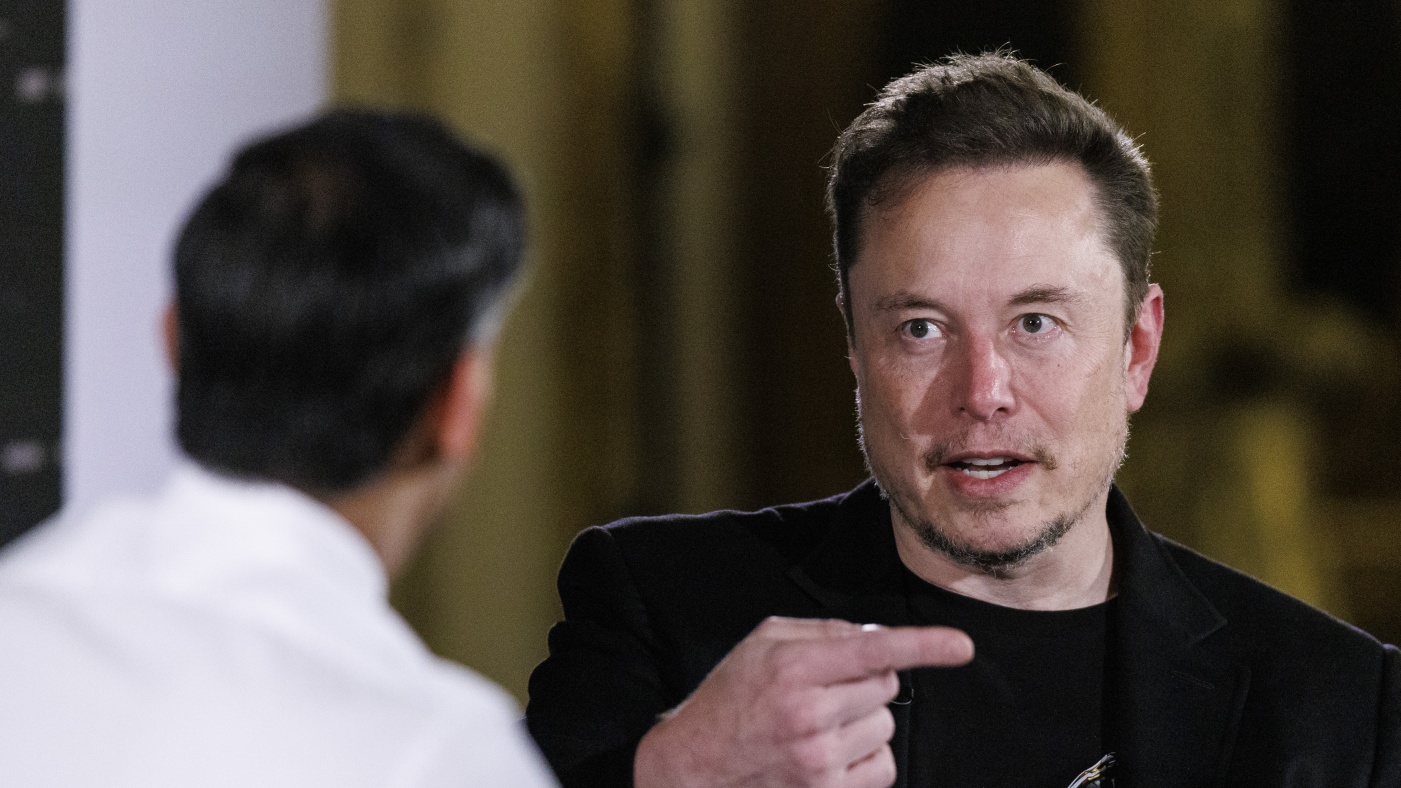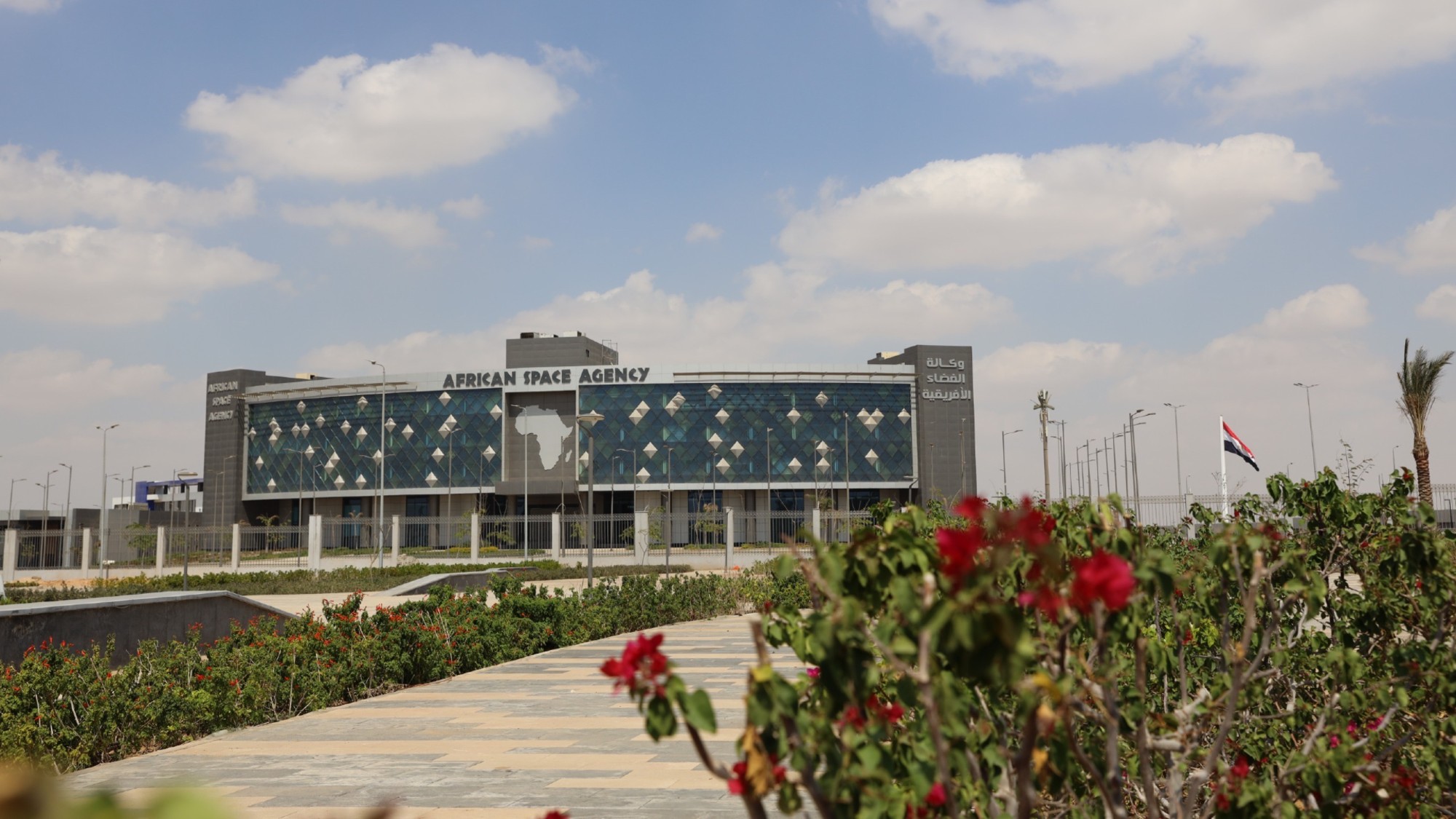When Rishi met Elon: five things we learned from AI summit
AI will put an end to work and we should be wary of Terminator-style robots, says Musk

A free daily email with the biggest news stories of the day – and the best features from TheWeek.com
You are now subscribed
Your newsletter sign-up was successful
The UK's AI safety summit at Bletchley Park has drawn to a close, with nations signing an international declaration to address risks with the rapidly developing technology.
On the first of the two days, 28 governments, including the UK, US, EU, Australia and China, signed the Bletchley declaration, acknowledging the potentially catastrophic risks posed by artificial intelligence (AI).
On day two, Rishi Sunak unveiled a "landmark" agreement for testing AI models, in which "like-minded governments" can now assess the AI models of eight leading tech companies before their release.
The Week
Escape your echo chamber. Get the facts behind the news, plus analysis from multiple perspectives.

Sign up for The Week's Free Newsletters
From our morning news briefing to a weekly Good News Newsletter, get the best of The Week delivered directly to your inbox.
From our morning news briefing to a weekly Good News Newsletter, get the best of The Week delivered directly to your inbox.
The Week takes a look at five key takeaways from the event.
The Sunak-Musk chat raised eyebrows
The summit was brought to a close with an unprecedented 40-minute one-on-one interview at Lancaster House on The Mall in central London, in which Sunak asked tech billionaire and Tesla CEO Elon Musk about his views on the future of AI.
This set-up raised more than a few eyebrows among British journalists. The Guardian described Sunak's demeanour as that of an "eager chatshow host" who was quick to flatter the world's richest man. "You are known for being such a brilliant innovator and technologist," Sunak told Musk at one point during the interview.
Sky News' deputy political editor Sam Coates described the talk as "one of the maddest events I've ever covered", with "40 minutes of softball questions" and "jovial witticisms" from Sunak.
A free daily email with the biggest news stories of the day – and the best features from TheWeek.com
And The Times' Matt Chorley pondered in a column: "why is the actual prime minister of Great Britain and Northern Ireland sitting here like Gloria Hunniford, hanging on every word of this guy who bought Twitter and drove it towards the ground faster than one of his early rockets?"
AI could eliminate jobs in the future
AI will be "the most disruptive force in history" in terms of jobs, Musk warned Sunak.
"There will come a point where no job is needed – you can have a job if you want to for personal satisfaction," he said. One of the challenges of the future, he added, will be how to find meaning in life in a world where jobs are unnecessary.
Earlier in the conference Sunak had sought to assuage fears over AI's threat to jobs, saying technology should be seen as a "co-pilot" rather than "something that necessarily is going to replace someone’s job".
Responding to Musk's vision of a work-less future, Sunak replied: "I'm someone who believes work gives you meaning."
Fears over 'Terminator-style' robots
One of the more alarming topics of discussion was the scale of the threat AI could pose to humanity.
On the second day of the summit, Sunak said that AI technology could pose a risk "on a scale like pandemics and nuclear war". That was why global leaders had "a responsibility to act to take the steps to protect people".
During his interview with Sunak, Musk said that "we should be quite concerned" about Terminator-style humanoid robots that "can follow you anywhere".
"If a robot can follow you anywhere, what if they get a software update one day, and they're not so friendly any more?" said Musk, stressing the importance of a physical off-switch for such inventions.
A bemused Sunak replied: "You're not selling this."
Sunak's Silicon Valley vision for Britain
During his talk with Musk, Sunak said he wanted to "transpose" the entrepreneurial culture of "places like Silicon Valley", where, according to Sunak, people "are unafraid to give up the security of a regular pay cheque to go and start something and be comfortable with failure".
The comment was branded "out of touch" by Labour front-bencher Jonathan Ashworth, who wrote on the Musk-owned social media platform X: “After 13 years of the Tories, the public are enduring the worst cost-of-living crisis in memory and he is spending his time telling Elon Musk that he wishes they would give up their jobs and be ready to fail. He hasn't got a clue."
… but the summit was a 'diplomatic coup'
Prominent figures, including US Vice President Kamala Harris and European Commission President Ursula von der Leyen, as well as Wu Zhaohui, China's vice minister of science, attended the summit.
"The fact that the prime minister was able to get both China and the U.S. to share a stage and co-sign a statement on frontier AI risks is a major achievement in itself. Both the geopolitics and domestic politics here are so fraught, and it took real creativity and legwork to make this happen," Matt Sheehan, a fellow at the Carnegie Endowment for International Peace, told Politico.
More than 25 countries and the EU signed the Bletchley declaration, which recognised the need to recognise the risks involved in AI development. France will host the next AI safety summit next year, "guaranteeing that Sunak's initiative will live on", said The Guardian.
Sorcha Bradley is a writer at The Week and a regular on “The Week Unwrapped” podcast. She worked at The Week magazine for a year and a half before taking up her current role with the digital team, where she mostly covers UK current affairs and politics. Before joining The Week, Sorcha worked at slow-news start-up Tortoise Media. She has also written for Sky News, The Sunday Times, the London Evening Standard and Grazia magazine, among other publications. She has a master’s in newspaper journalism from City, University of London, where she specialised in political journalism.
-
 Switzerland could vote to cap its population
Switzerland could vote to cap its populationUnder the Radar Swiss People’s Party proposes referendum on radical anti-immigration measure to limit residents to 10 million
-
 Political cartoons for February 15
Political cartoons for February 15Cartoons Sunday's political cartoons include political ventriloquism, Europe in the middle, and more
-
 The broken water companies failing England and Wales
The broken water companies failing England and WalesExplainer With rising bills, deteriorating river health and a lack of investment, regulators face an uphill battle to stabilise the industry
-
 AI surgical tools might be injuring patients
AI surgical tools might be injuring patientsUnder the Radar More than 1,300 AI-assisted medical devices have FDA approval
-
 NASA’s lunar rocket is surrounded by safety concerns
NASA’s lunar rocket is surrounded by safety concernsThe Explainer The agency hopes to launch a new mission to the moon in the coming months
-
 How Mars influences Earth’s climate
How Mars influences Earth’s climateThe explainer A pull in the right direction
-
 How climate change is affecting Christmas
How climate change is affecting ChristmasThe Explainer There may be a slim chance of future white Christmases
-
 Africa could become the next frontier for space programs
Africa could become the next frontier for space programsThe Explainer China and the US are both working on space applications for Africa
-
 SpaceX breaks Starship losing streak in 10th test
SpaceX breaks Starship losing streak in 10th testspeed read The Starship rocket's test flight was largely successful, deploying eight dummy satellites during its hour in space
-
 NASA is moving away from tracking climate change
NASA is moving away from tracking climate changeThe Explainer Climate missions could be going dark
-
 A rat infestation is spelling trouble for the almond industry
A rat infestation is spelling trouble for the almond industryThe Explainer The infestation has affected at least 100,000 acres in California